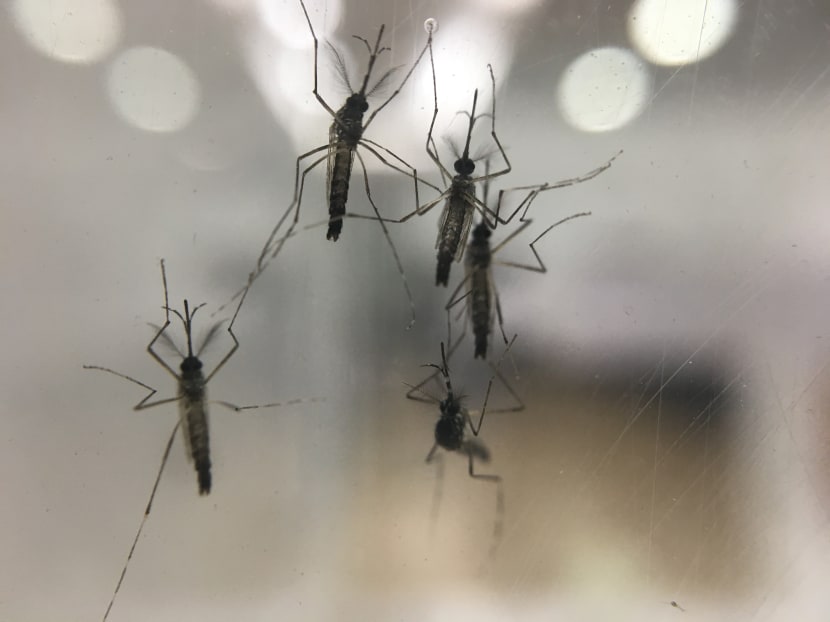Trial to curb Aedes mosquito numbers yields ‘valuable data’
SINGAPORE — Some three months since male Wolbachia-carrying Aedes aegypti mosquitoes were released into three housing estates as part of a field study to control the mosquito population, results so far have been encouraging, with the National Environment Agency (NEA) saying the initiative has provided “valuable data”.
SINGAPORE — Some three months since male Wolbachia-carrying Aedes aegypti mosquitoes were released into three housing estates as part of a field study to control the mosquito population, results so far have been encouraging, with the National Environment Agency (NEA) saying the initiative has provided “valuable data”.
At one site — Tampines West — half of the mosquito eggs collected from there did not hatch — a promising step towards the goal of suppressing the mosquito population.
Eggs produced from a male Wolbachia-carrying Aedes aegypti mosquito and a female urban Aedes aegypti mosquito will not hatch, as they are biologically incompatible.
At a media interview on Wednesday (Feb 8), Professor Neil Ferguson, a member of the NEA’s Dengue Expert Advisory Panel, said the results so far show that the male Wolbachia-carrying mosquitoes are able to successfully mate with female urban Aedes aegypti mosquitoes.
“It indicates that the males will be able to compete effectively (against other urban male Aedes aegypti mosquitoes). That’s what we need in order to drive down the mosquito population,” Prof Ferguson said.
The six-month ongoing study, called Project Wolbachia-Singapore, also found out that male Wolbachia-carrying Aedes aegypti mosquitoes are able to live up to four days after being released in the urban environment, and can fly to high levels when released at ground level.
Prof Duane Gubler, who chairs the panel, said a male mosquito’s lifespan will affect its probability of mating with females. Noting that male mosquitoes typically live less than a week, Prof Gubler said if mosquitoes are released when older, they could be less potent. “If you reduce the age (at release) by a day, it could (yield significant results) over a large number of mosquitoes,” he added.
From October last year, male Wolbachia-carrying Aedes aegypti mosquitoes were released in Braddell Heights, Tampines West, and Nee Soon East, testing three study parameters: Fertility, mate-seeking behaviour, and flight ability.
The study will find out if these mosquitoes can help reduce the population of urban Aedes aegypti mosquitoes, which carry the virus that causes dengue fever, as well as the Zika and Chikungunya viruses.
The findings from this study will go into refining the design of a larger suppression trial slated to kick off later this year, said the NEA yesterday.
Despite the promising findings so far, the NEA has said they should not be relied on “as our sole strategy”.
“A strong, integrated vector-control programme with community participation, underpinned by Singapore’s well-established programme for the elimination of mosquito breeding habitats and the selective use of insecticides, where necessary, to control the adult mosquito population remain essential for dengue prevention in Singapore,” it said in a media release.
In January, the NEA warned that the number of dengue cases could increase over the next few months, reaching their peak by the middle of this year.
According to the NEA’s dengue website, the total number of dengue cases reported since the start of the year stands at 361, relatively low compared with the similar period in past years.
Last year, there were a total of 13,115 dengue cases, below the projection of more than 30,000 cases. Experts TODAY had spoken to previously had pointed to this decline as a result of the heightened awareness and control measures arising from the Zika outbreak last year.







